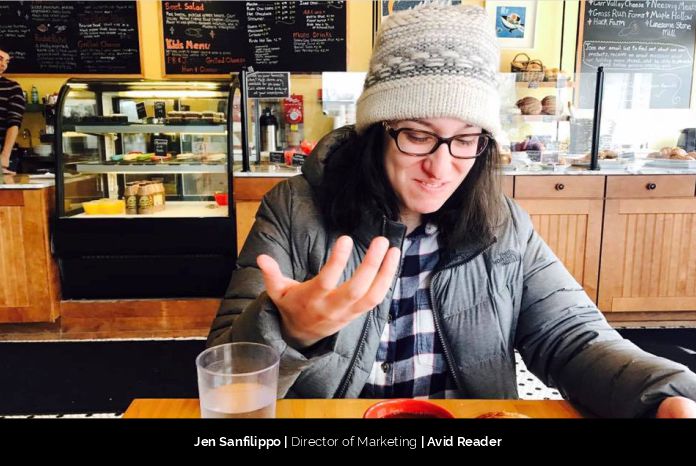The Gamification of Love: Why Finding Love Online is So Damn Hard
Beyond’s 10 Most Inspiring Business Leaders to Watch Out For 2020

Every once in a while, I find myself thinking that online dating is a good idea.
“It’s better than nothing,” I say to myself, or, “It’s not like I’m going on Tinder, I’ll try this great new app.”
So I join a site and spend hours setting everything up and talking to guys.
And you know what? Every single time, I delete my account within a few weeks.
The first week is exciting.
I spend hours picking the best pictures and crafting a smart, funny bio. I look at hundreds of profiles.
I smile when I get a notification from someone who likes my profile or wants to chat. I’m sitting there, refreshing the page every few minutes. Looking at more profiles. Delighted by new matches.
And who wouldn’t be delighted? Any one of these guys could be The One. All I have to do is figure out which one it is!
Then the conversations start. Writing has always been easy for me, so typing out smart, funny messages comes fairly naturally. I’m lighthearted, I tease, once in a while I express a genuine sentiment — essentially, I say all of the right things.
The second week becomes a little more complicated.
I’m juggling conversations with multiple guys. Was it Greg or Aaron who has a younger brother? Was it Matthew or Rick who likes Mexican food?
Matches keep coming in. I’ll open up the app and have 20 guys interested in me. Sometimes I think, “oh fuck it, I don’t need to check out all of these new guys. I’m already talking to eight guys!”
But then I remember: Any one of these guys could be The One. What if it’s Brady, who just sent an innocuous “hey, what’s up” message?
So I’ve got to respond. And I’ve got to check out the profiles of the other 19 guys.
In week one, you’re giving careful attention to every word of a guy’s profile. By week two, you’re skimming. You’re becoming selective. The slightest thing can turn you off.
Oh, Brady doesn’t like coffee? It will never work. Next.
Then the dates start. You learn the true meaning of the word “chemistry” when you don’t have it.
Or you have a good time and they never call.
Or you have a good time, but you start
wishing they won’t call.
By the third week, I’m downright exhausted. It’s too much to keep up with. Then I remember that I don’t have to do this. I delete my accounts. I breathe. I go back to nights in with the cats and Everwood.
But I’m young! I should be out doing exciting things! Making memories! Dating!
Here’s the thing:
Online dating isn’t dating. It’s the
gamification of dating.
Dating apps or websites, like all forms of social media, encourage you to value certain things. And more often than not, they value quantity over quality. So even if you are looking for real intimacy, you suddenly find yourself valuing quantity over quality, too.
Let’s talk about Facebook for a second. Facebook encourages and discourages you to think certain ways and take certain actions, just like every other social media website.
Think about “liking” something.
For years, hitting the “like” button was the only reaction that you could have to a post. Whether you’re interacting with a post about the death of a loved one, a friend’s engagement announcement, or a rant about how crowded the grocery store is on the weekends, the only emotion that you can have and express it “like” — which isn’t even really an emotion to begin with.
Our range of emotions as human beings has been reduced to one — “liking”.
Alright, so people caught onto this and made a stink about it and Facebook changed their algorithm. Now, people have the ability to “like”, “love”, “haha”, “wow”, “sad” or “angry”. Now we’re allowed to have a whopping six emotional reactions to the things that we come across on Facebook.
Never mind the fact that some of these things aren’t even emotions (“I feel wow.” Yeah, that works). Think for a second about the complicated emotions that we feel as people every day. Now think about how Facebook simplifies those emotions and funnels them into six.
That’s Facebook controlling our ability to think, feel, and express ourselves deeply.
Now Facebook probably doesn’t do this with the intention of making us emotionless robots. But when you think about it, it’s still creepy.
And when you realize that a “like” is just a hologram of an emotion, why does it feel so good when you get the notification that someone else has liked your post?
Because Facebook isn’t really about connection. It’s about the gamification of the experience of connection.
And this is what all social media
platforms do: their algorithms allow us to do the things that they want us to
do and prevent us from doing the things that they don’t want us to do.
It’s the same with online dating apps. When a dating app allows you to open it up and see that you have 100 new matches, they are clearly valuing quantity over quality.
You don’t have the compatibility to date these 100 people. You probably don’t even have the compatibility to date one of them.
Yet there they are, making you feel good with their notifications and perfect smiles.
Over time, even if you went on the dating site with the goal of finding love, your values will shift to align with the values of the app. You might not even notice it. But after a while, the hundreds of profiles that fly by every day will desensitize you to the fact that these are real people, and you originally joined this website to make a real connection with them.
Not everyone is looking for love online.
Some people are looking for friends.
Others are looking for casual dates.
Others are looking for sex.
If you fall into one of these categories, it won’t much matter if you find yourself without intimate connections on these sites. But if you are looking for a genuine connection and a long term relationship, online dating, despite its convenience, despite the fact that it should work, might not be the most effective choice.













